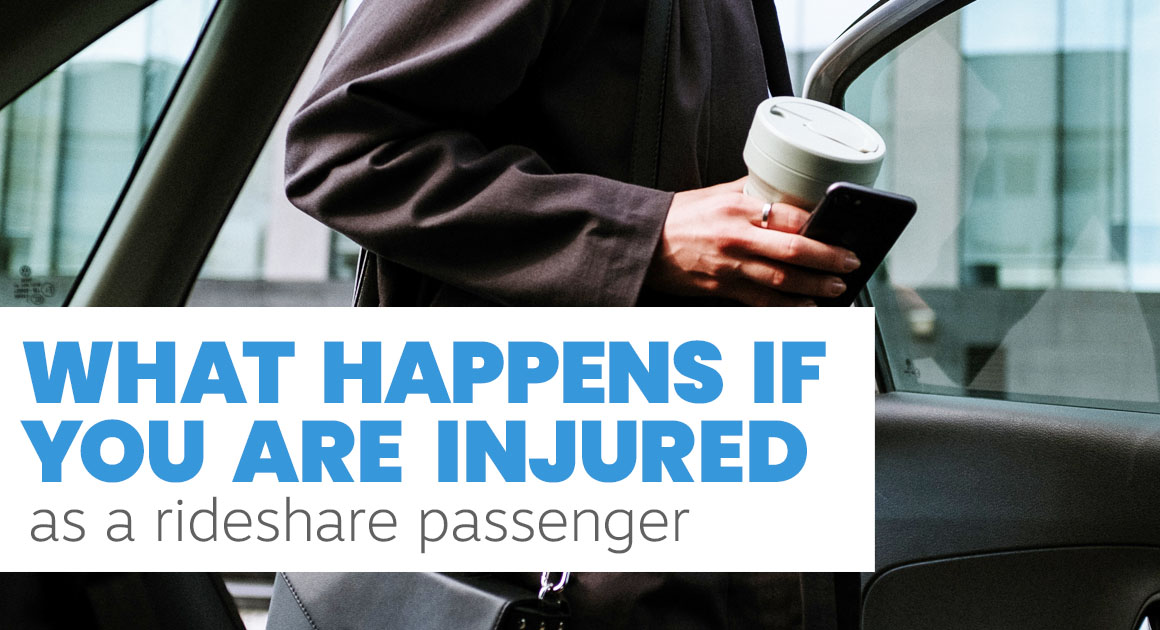When the concept of ride-sharing first emerged, paid transportation services changed forever. Beyond the convenience and opportunity that ride-sharing created, a host of issues and liabilities not previously considered came with it. Unfortunately, car accidents occur on a daily basis and it becomes a little more complicated with rideshare services. What happens if you have been injured as a passenger in an Uber® or Lyft® accident?
Uber® and Lyft® drivers are required to carry personal auto insurance. These personal comprehensive and collision policies vary between city and state regarding fault vs at-fault drivers as well as business use exceptions vs commercial policies. Both Uber® and Lyft® carry third-party liability coverage that pays up to $1 million for personal injuries, property damage, and vehicle repair following an accident. In short, the good news is that if you are injured as a passenger in an Uber® or Lyft® accident, your personal injuries will likely be covered.
It is important to note that Uber® and Lyft® consider their drivers to be independent contractors, not actual employees. This matters because as a passenger, you are subject to the personal insurance coverage or lack of personal insurance coverage of both the Uber® or Lyft® driver as well as the other driver involved if they are at-fault. Proving liability, receiving compensation, and recovering losses when injured as a passenger in an Uber® or Lyft® accident is complicated, and trying to do it on your own may leave you empty-handed.
If you have been injured in an accident as a passenger in an Uber® or Lyft® vehicle, you deserve to be covered and compensated for your losses. Contact the Law Offices of Reginald Keith Davis for the experience and expertise needed to help you receive the compensation you deserve.
Contact Reginald Keith Davis, Attorney at Law, for your free consultation @ (913)-299-8789. He is licensed in both Kansas and Missouri.

